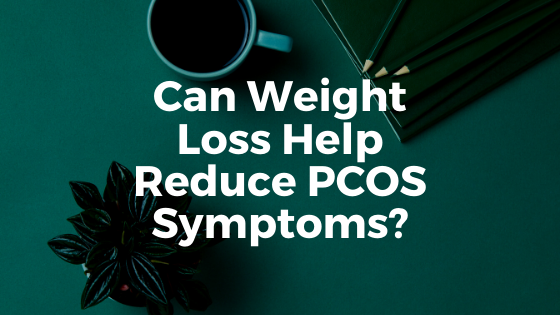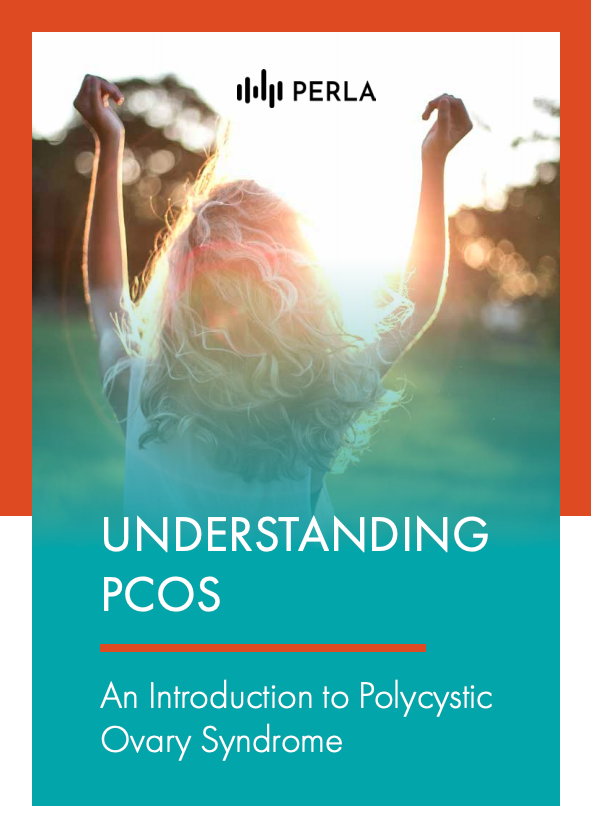PCOS (Polycystic Ovary Syndrome) is the most common hormonal condition in women of reproductive age. It can lead to a variety of symptoms such as hair growth, acne, hair loss, difficulties conceiving – and it can also have an effect on weight. Many women with PCOS are struggling with weight gain or obesity. Doctors recommend losing 5 to 10% of one’s body weight to restore normal ovulation and reduce PCOS symptoms. But for many women, it’s not as simple as it may seem.
How Weight Loss Improves PCOS
The exact cause of PCOS is not completely understood, and the symptoms women with PCOS experience can vary greatly. Some women struggle with reproductive issues. Some want to get rid of excess body hair; for others, it’s hair loss, acne, or the fat tissue around their waist and abdominal area.
Despite the many faces of PCOS, all doctors and experts agree that losing weight through a sustainable diet and exercise can have a big effect on women with PCOS who are struggling with their weight.
High androgen levels (hyperandrogenism) in women with PCOS cause hirsutism (excess hair growth), male-pattern hair loss, moderate to severe acne, and obesity. Studies have shown that even a modest weight loss can help improve these symptoms, but how? 1
Weight Loss Decreases Androgen Levels
A Cochrane review revealed that weight loss reduces male hormones (androgens), and therefore can improve the physical signs of hyperandrogenism.2 It can also improve insulin resistance, menstrual cycles, and overall quality of life in women with PCOS.3
High androgen levels can make you crave high-fat foods and increase your risk for binge eating. Maintaining a healthy weight will help balance your reproductive hormones and restore the normal function of the ovaries.
Women with high testosterone tend to hold excess body fat in their waists and arms. This body type is described as apple-shaped and is called the android body type. Fat stored in the midsection is dangerous because it is associated with serious conditions such as diabetes, heart attack, and stroke. While it’s not possible to completely change your body shape, losing weight by combining exercise with proper nutrition can help burn belly fat.
Weight Loss Improves Insulin Sensitivity
Making dietary changes, regardless of weight loss, reduces insulin levels and improves insulin sensitivity.4 Insulin can raise testosterone levels by:5,6
- Reducing the production of SHBG (sex hormone-binding globulins), which increases free testosterone in the blood
- Increasing the production of androgen in the ovaries
You should focus on eating fewer processed carbs and increasing physical activity. Regular exercise, in the form of aerobic exercise and strength training, can rebalance your hormones. Hormone imbalance is what’s causing your symptoms.
Why It’s Hard to Lose Weight with PCOS
Gaining weight because of unhealthy food choices and inactivity worsens the features of PCOS. Women who are above their healthy weight levels are more likely to have irregular periods and ovulatory infertility.
Failing to address obesity can have dire consequences for preventing PCOS complications. The syndrome puts women at risk for conditions with lifelong implications including diabetes, heart disease, mood disorders, and endometrial cancer.
To many people, losing weight or maintaining a healthy weight is a Herculean task. But women with PCOS say it is even harder for them. You are not imagining it. It is really a challenge to lose weight and keep the weight off when you have PCOS. And there are a few reasons why:
- Insulin resistance. Both lean and obese women with PCOS are at higher risk for insulin resistance.7 Insulin regulates the metabolism of carbohydrates by converting sugar and starches into energy. If the cells of the body are less sensitive to insulin, sugar and insulin build up in the bloodstream. High levels of insulin increase the production of androgens, which causes weight gain, especially in the abdominal area.
- Altered hunger and appetite hormone levels. PCOS can make you hungry because the hormones (leptin,8 ghrelin,9 and cholecystokinin10) that control appetite and satiety are not regulated properly. This results in increased food intake and difficulty losing weight.
- Obstructive sleep apnea. Women with PCOS are more likely to develop sleep apnea—a sleep disorder that causes abnormal breathing during sleep.11This results in snoring, non-restful sleep, and daytime sleepiness, which increases your risk for high blood pressure, diabetes, and weight gain.
- Eating disorders. PCOS can lead to binge eating, anorexia, or bulimia. In some people, overeating or binge eating is their way of coping with the stress of having PCOS. High insulin levels and hormone imbalance may also cause intense carbohydrate cravings.
Conclusion
Currently, it’s not yet possible to cure PCOS, but it is possible to live a symptom-free life. Successful treatment often involves experimenting with different therapies when diet and exercise alone don’t fully resolve symptoms. The fact that women with PCOS have a greater risk of being overweight is a problem in itself, but trying to shed those pounds is the real struggle. Talk to your PCOS care team to get actionable tips on how to lose weight safely.
Sources:
- Ionescu CA, Popescu I, Banacu M, Dimitriu M. Lifestyle Changes and Weight Loss: Effects in PCOS. Debatable Topics in PCOS Patients. Published online February 14, 2018. doi:10.5772/intechopen.73298
- Lim SS, Hutchison SK, Van Ryswyk E, Norman RJ, Teede HJ, Moran LJ. Lifestyle changes in women with polycystic ovary syndrome. Cochrane Database of Systematic Reviews. Published online March 28, 2019. doi:10.1002/14651858.cd007506.pub4
- Rondanelli M, Perna S, Faliva M, Monteferrario F, Repaci E, Allieri F. Focus on metabolic and nutritional correlates of polycystic ovary syndrome and update on nutritional management of these critical phenomena. Archives of Gynecology and Obstetrics. 2014;290(6):1079-1092. doi:10.1007/s00404-014-3433-z
- Shang Y, Zhou H, Hu M, Feng H. Effect of Diet on Insulin Resistance in Polycystic Ovary Syndrome. The Journal of Clinical Endocrinology & Metabolism. 2020;105(10). doi:10.1210/clinem/dgaa425
- Abdel-Rahman MY. Androgen Excess: Practice Essentials, Pathophysiology, Epidemiology. Scott Lucidi R, ed. eMedicine. Published online May 1, 2020. https://emedicine.medscape.com/article/273153-overview
- Nestler JE. Insulin regulation of human ovarian androgens. Human Reproduction. 1997;12(suppl 1):53-62. doi:10.1093/humrep/12.suppl_1.53
- Marshall JC, Dunaif A. Should all women with PCOS be treated for insulin resistance?. Fertil Steril. 2012;97(1):18-22. doi:10.1016/j.fertnstert.2011.11.036
- Ramanand SJ, Ramanand JB, Jain SS, et al. Leptin in non-PCOS and PCOS women: a comparative study. International Journal of Basic & Clinical Pharmacology. 2017;3(1):186–193. Accessed December 29, 2020. https://www.ijbcp.com/index.php/ijbcp/article/view/975
- Moran LJ, Noakes M, Clifton PM, et al. Ghrelin and Measures of Satiety Are Altered in Polycystic Ovary Syndrome But Not Differentially Affected by Diet Composition. The Journal of Clinical Endocrinology & Metabolism. 2004;89(7):3337-3344. doi:10.1210/jc.2003-031583
- Lindén Hirschberg A, Naessén S, Stridsberg M, Byström B, Holte J. Impaired cholecystokinin secretion and disturbed appetite regulation in women with polycystic ovary syndrome. Gynecological Endocrinology. 2004;19(2):79-87. doi:10.1080/09513590400002300
- Kahal H, Kyrou I, Uthman OA, et al. The prevalence of obstructive sleep apnoea in women with polycystic ovary syndrome: a systematic review and meta-analysis. Sleep and Breathing. 2019;24(1):339-350. doi:10.1007/s11325-019-01835-1


